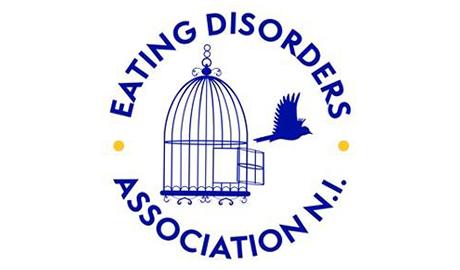Approaching Someone
It can feel very overwhelming to feel that someone you care about may be struggling with an eating disorder, it is important to remember however that that help and treatment is available and recovery is always possible. Try not to panic and remember - you are not alone.
First of all, it is important to remember that eating disorders are serious psychological illnesses and that no-one chooses to develop an eating disorder. An eating disorder is best understood as a coping mechanism for dealing with difficult emotions and feelings. As such, it is not something that the person can let go of easily, it can take time. Thinking about eating disorders in this way may help you as you talk with the person you are worried about.
Eating disorders strive on silence and secrecy so it is very important that you do talk to the person that you are worried about. Denial is very common with people affected by eating disorders and they may not be aware that they have a problem, it is possible that the person may not feel happy about you bringing the subject up. Try and remind yourself that this denial is very much part of the illness.
Below are a few tips on approaching someone you are worried about:
- Get informed: There are many unhelpful myths and misconceptions about what eating disorders are. It is important that you read as much factual and reliable information as you can.
- Pick a suitable time and place: Choose a time to bring up the conversation when you know that you will both have enough time to talk and you will not need to cut the conversation short. Choose a place whereby the person will feel comfortable and safe should they choose to open up about any difficulties or concerns that they may have. Before, during and after meals are generally not a good time to bring up the topic.
- An eating disorder is a coping mechanism: Reminding yourself of this can help to direct your conversation. Try and not focus on food, weight and shape but rather – ask the person how they are, ask them how they are feeling, ask them to try and help you understand. Focusing on food and weight may cause sensitivities which may lead to conflict and the conversation shutting down.
- Let the person know how you are feeling: Be open and honest, let them know that you are there for them
- Be aware of language: Try and use non-judgemental language that does not afford blame or criticism. An eating disorder is a serious psychological illness that no-one chooses.
- Try not to pressure them for instant changes: This can be very difficult for both of you. You just want your loved one to be happy and healthy so it is understandable that you want an immediate ‘fix’. Recovery from an eating disorder however is not straightforward and can take time. The eating disorder is ultimately a coping mechanism, change can therefore be very frightening for the person, letting go can be very anxiety provoking and frightening, it takes time.
- Try and avoid making assumptions as to why they may be struggling with an eating disorder. Eating disorders are very complex and can come about as a result of many potential factors.
- It can be helpful to try and separate your loved one from the eating disorder which is manipulating their thinking and behaviours. Separating the unwell eating disorder part of your loved one from the healthy part can be helpful.
- Composure: Try and remain calm, avoid getting angry and giving ‘well intentioned’ ultimatums in the hope that that will make them get better. Eating disorders are much more complex than that.
- Be prepared for denial: The person may get angry, try and not take it personal and try and not be put off trying to help them. Remind them that you want to try help them.
- Approach again: If you are met with hostility and anger, it may be difficult to think about approaching the person again at a later date. But, silence and not talking about it is not the answer and it will not help.
- If the person does feel and accept that they have a problem encourage them to seek help and see their GP as soon as possible as the earlier treatment is accessed the better the outcome. Let them know of our services and encourage them to contact us for support.
























